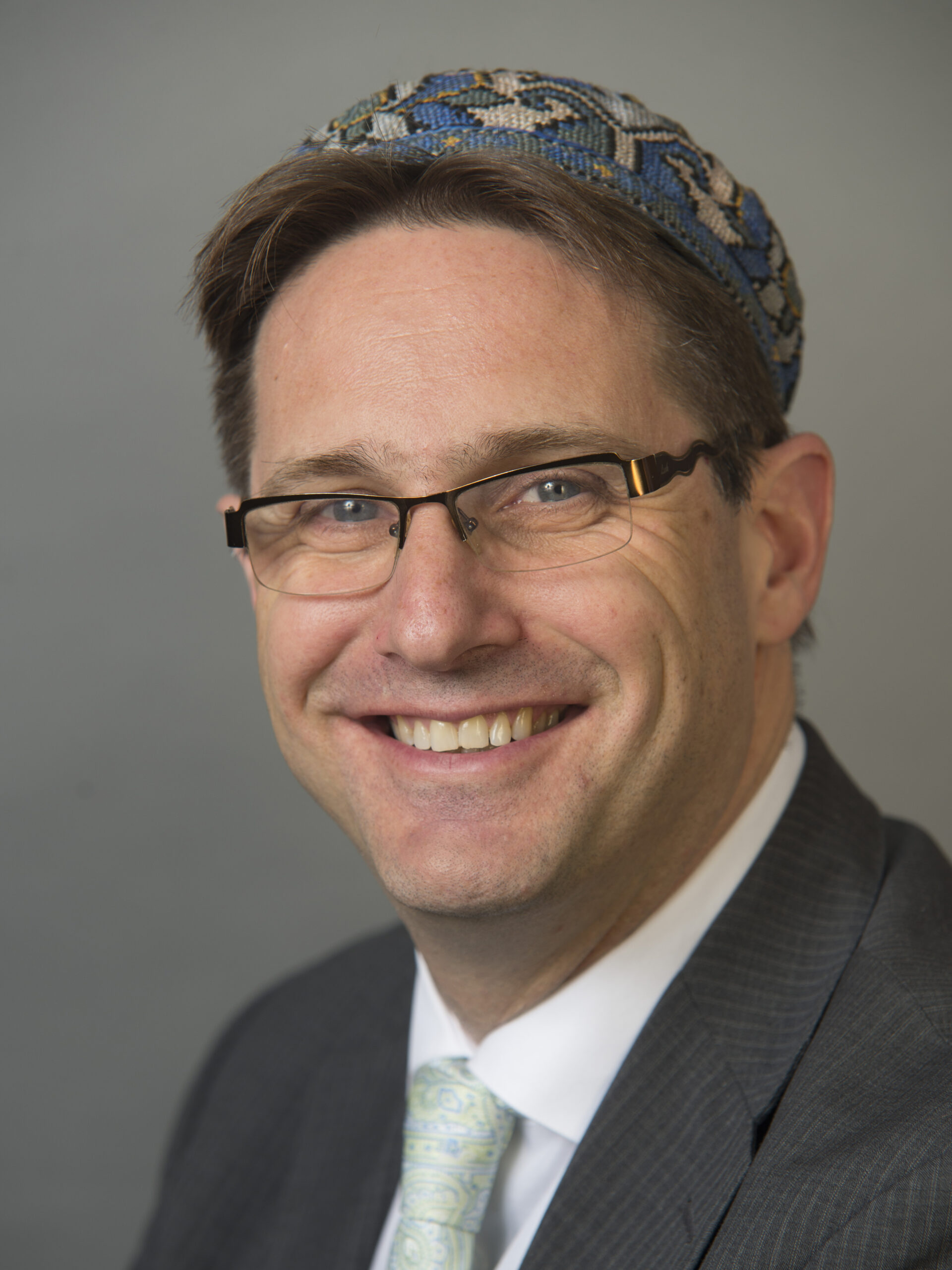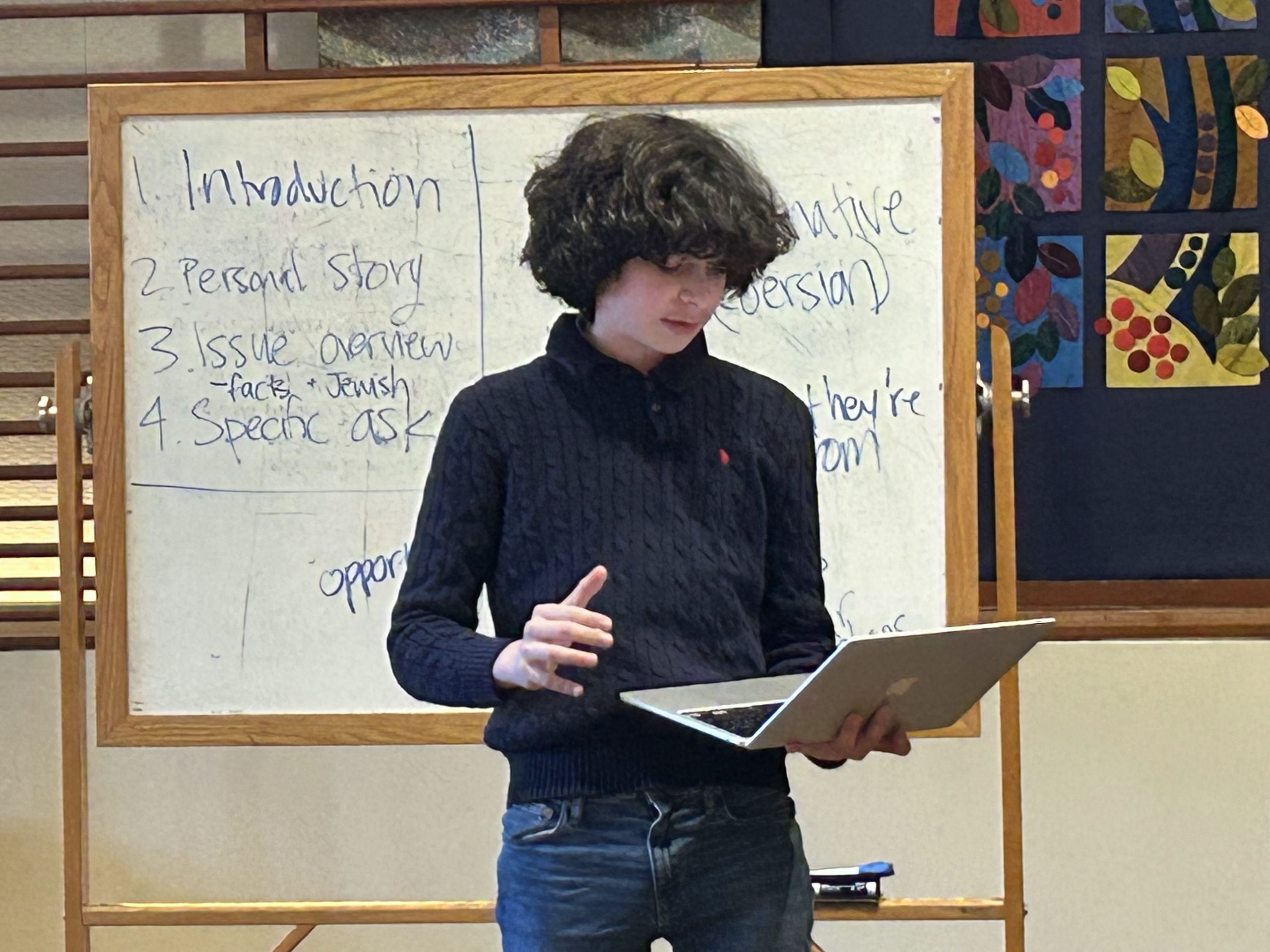
A conversation with Dr. Stephen Arnoff, Executive Director of USCJ’s Fuchsberg Jerusalem Center
Q: You were born and raised in the United States. Having lived in Israel now for so many years, what would you say is the most common mis-perception North American Jews have about Israel?
DR. ARNOFF: That Israel is monolithic, that there’s such a thing as “Israel says” any more than there’s such a thing as “Judaism says.” Judaism doesn’t say. There are so many different ways of expressing what Judaism says. It’s not a sentence that makes any sense any more than “Israel is.”
Israel is not monolithic. Like the Jewish community, Israel is full of micro-communities, sociological combinations that couldn’t have been imagined, mixtures of language and culture and influence.
Israel is not just about politics or security. It’s not just about the kinds of images that may be more cliché. It’s about taking a nuanced, more immersive approach. So a person who loves music should engage with Israel deeply through music. Same for someone who loves food or liturgy or art. A person who loves and cares about the environment should come to one of the most innovative, per capita, guardians of the environment anywhere in the world — from the recycling of water and the use of solar energy to the development of all kinds of technologies that influence how sustainable food is grown. If you’re interested in the world, Israel is a wonderful laboratory in which to explore it, through the Israel lens.
Q: Can you say more about the immersive approach and how it informs perception?
DR. ARNOFF: From my perspective, whether it’s something short-term like Birthright Israel or long-term like Nativ or the Conservative Yeshiva, two of our signature programs here at the Fuchsberg Jerusalem Center (FJC) — it is through the immersive experience that someone experiences community on an intimate scale. Content, whether it’s textual content, Israel experiences or meeting with Israelis — that’s where real engagement happens. And that’s what transforms people’s lives.
Real engagement does not happen on a website, reading the news, making terse comments on social media, or in taking a position and not listening to other positions. Immersion creates a 360-degree experience of the place. And I believe that the more people who can have an immersive experience in Israel, whatever their political or religious perspective, the deeper their connection will be. It will be more nuanced. It will be more complicated. But it will feel like something in a way that a long distance relationship doesn’t.
Q: Aren’t we talking about a small percentage of individuals who have the opportunity to engage in an immersive experience?
DR. ARNOFF: I understand the need for wanting the numbers to get really big, but Judaism has always thrived on communities of a different scale. It has been the network of small communities that has made Judaism big — and resilient. So let’s not be distracted by large numbers of less than deep connection, when Jewish life historically has been defined by a network of small communities with a number of flagship communities.
Whether it’s Baghdad, Jerusalem, Vilna, NY or Los Angeles, there were always flagship communities. But for every New York City, there were hundreds of Poughkeepsies. Who is the rabbi, who is the lay leader, who are the scholars, what good works is that community doing, what’s their relationship with their non-Jewish neighbors — that’s what defines what those small communities give back to the larger network. It’s always been a sense of being greater than one’s self, being part of a covenantal community which is defined globally and a micro-community that is defined locally.
Q: There’s a perception that Israel and the rest of the global Jewish community are drifting apart. Do you feel that’s true?
DR. ARNOFF: Well, I feel that Kentucky and NY are drifting apart, too. What does it mean that they are drifting apart? I could show you Conservative Jewish communities that are fiercely Zionist and they would say, “Drifting apart? We’ve never been closer. We’ve never had more families who go back and forth, who speak Hebrew. We’ve never had more Israelis who choose to live in our communities and then go back to Israel. We’ve never had as many kids who went on a gap-year program.”
So I don’t think that there’s a label that describes every community, and even within a single community, I don’t think there’s a label. And I don’t think it’s useful to disempower people who are deeply Zionist and who are making choices about Israel by saying that they are part of a civilization where things are drifting apart. They’re certainly not drifting apart in my house. And there are a couple hundred thousand other houses where they’re not drifting apart at all. Now maybe there’s hundreds of thousands where they are drifting apart, or maybe they were never really linked in those houses. Or maybe a generation from now they will be.
Q: Speaking of generations, there is also a perception that it’s no longer a given for Jews under the age of 35 to accept and support Israel. Your response?
DR. ARNOFF: Why is it no longer a given for people under the age of 35 to accept anything? Do Protestant or Catholic North Americans accept their Protestant or Catholic church? I don’t think it’s wise to think about Jewish sociology in a vacuum. We need to look at it in context with every other cultural trend. Because the same conversation is happening in faith communities of every kind in North America.
What are the defining cultural tropes of the world right now? It is about the crowd. It is about trend lines that cluster around certain great ideas and certain great innovations. It’s about a free market of ideas counterbalanced against totalitarian regimes. So people under 35 who look at the world and don’t trust the structures of the world, the infrastructure of the world, the systems of the world — and for good reason — don’t trust that in the Jewish realm as well. Any more than they trust the United States government or the media or any other previous given of society.
That being said, Israel is in a uniquely difficult situation in the world. One can point to various forms of Israeli fundamentalism or racism or dysfunction, but one can point to those times a thousand, times a million in its neighbors. And what’s happening around the world, what we clearly see is that even if Israel had created — and some would say it did — a true Garden of Eden, a true light unto the nations, would that make any difference in Europe right now where 90% of Jews say that anti-Semitism is a mortal threat?
Show me a world where Israel behaving in this way or another way would make a true difference in the zeitgeist of anti-Israel or anti-Jewish sentiment. I would be surprised if you could demonstrate to me, as the claim has been made, that it is Israel’s actions that drive anti-Zionism.
However, at the same time, I would say that there are many things that Israel can, should and must do to make life better for Israelis — Jews and non-Jews — as well as for Arabs. And certainly from our perspective, for non-Orthodox Jews — Conservative and Reform. Israel can, should and must do things differently.
Q: Is there anything you’d like to add in closing?
DR. ARNOFF: Just this: in the Hebrew Bible, the Israelites are called a stiff-necked people. And there’s a lot of complaining and kvetching — that’s not attractive. I had a very wise supervisor who once said to me, “If you want the job, start doing it and the title will come. So will the salary.” I feel the same way about Zionism. Find what’s attractive in it. Find what’s exciting about it. Find what’s troubling in it. Live it. Don’t complain. Get to work.







